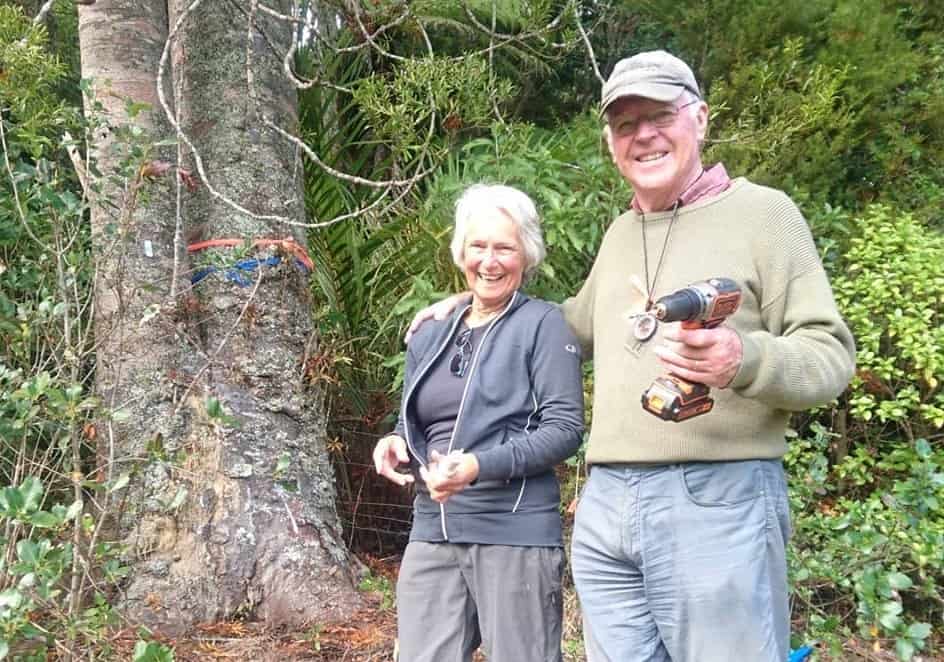Initially supported by the BioHeritage Challenge, Kauri Rescue was set up to help treat kauri dieback on private property during 2017 and 2018.
During that time they had over 500 enquiries from the public and project manager Dr Mels Barton says they were able to create kauri ambassadors within the community.
“Supporting landowners with large properties to treat and monitor their trees in a timely manner became a cornerstone of the project’s public engagement. It enables those without kauri on their own land to help others who do.
“The project also finds many landowners who have completed treatment of their own trees and are willing to help others do the same.” she says.
When BioHeritage funding ceased in December 2018, project lead Dr Ian Horner (Plant & Food Research) and the Kauri Rescue team were on the hunt for new support.
Auckland Council came on board in March 2019, allowing the project to continue for another year.
The scoreboard currently sits at more than 1,200 trees treated for kauri dieback on private land since Kauri Rescue’s conception.
Mels says along with treating trees, education and outreach is a critical part of the project.
This year alone the Kauri Rescue team has attended 21 events to help raise the profile of kauri dieback – an invasive pathogen killing some of our forest giants.
To learn more about Kauri Rescue and kauri dieback, visit http://www.kaurirescue.org.nz/
